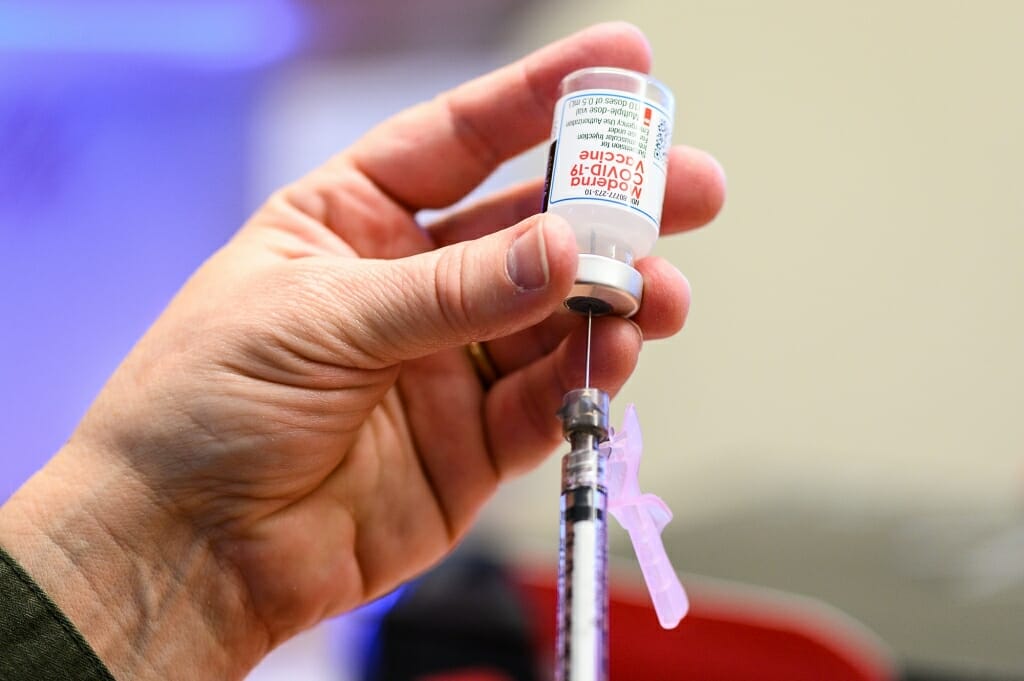COVID questions: Can I mix and match different vaccines? What if my partner refuses to be vaccinated? – University of Wisconsin-Madison

Editor’s note: We will be publishing answers to questions about COVID-19 and the pandemic each week in this COVID questions column. If you have a question, please email it to covid19update@uc.wisc.edu.
Q: I have been immunized with the Moderna vaccine. Can I now get vaccinated with the Pfizer vaccine? Does this apply to booster shots?
A: Once an individual has been fully immunized with one of the currently authorized vaccines — either two doses of Pfizer or Moderna, or a single dose of Janssen (J&J) — there is currently no indication for receiving additional COVID-19 vaccines. Doing so would likely result in more pronounced side effects than were experienced with the original two doses of Moderna vaccine, and would not offer much additional immunity while using up valuable vaccine that should be directed to someone who is unimmunized.
Individuals who have received one dose of Moderna or Pfizer vaccine should complete the vaccine series with the same vaccine. There is no data available regarding safety nor immune protection when people switch between vaccines, and this is not recommended.
The duration of immunity from COVID-19 vaccines is still unclear. Ongoing research is following original recipients of vaccines to determine whether boosters will be necessary, and when those might occur. Currently there is no evidence that boosters will be required, but with the emergence of variant strains this could be a possibility. This will likely not be a consideration until 2022 at the earliest.
—James Conway, Pediatric Infectious Diseases Fellowship Program Director and School of Medicine and Public Health Office of Global Health Director
Q: My husband is refusing to get the vaccination, so I would like some advice or guidelines on how to live in a household where only one person is vaccinated.
A: From a social perspective, this is a challenge, though, too: Does the husband want his partner to continue to quarantine? If so, is the partner willing to do that? Is there tension around the politics of vaccination, too? Open communication, empathetic listening and asking questions can help this couple find common ground.
—Christine Whelan, Clinical Professor, Consumer Science, School of Human Ecology
A: Christine is right — generally we know that it’s more effective to listen than to educate when it comes to trying to convince someone to get a vaccine. Ramming facts down his throat is likely to produce more resistance to getting the vaccine. I also recommend some patience. Lots of people are in the “not yet” camp, and patience will help us wait until they come around. And, like Christine, I’m curious about the sources of his resistance. Is it politics? Health conditions? Bad info? If it’s conspiracy theory, here are some tips.
In terms of behaviors, many of us live in a “mixed household” with adults who are vaccinated and kids who are not. Unvaccinated people, no matter what their age, will need to keep on practicing the same old risk reduction behaviors. That is to say, he will still need to wear a mask whenever they’re in the presence of other people even in small gatherings. She does not, since she’s vaccinated. The SMART guidelines for unvaccinated people are attached to this post, and the rest of the content may be useful too.
—Malia Jones, social epidemiologist, Applied Population Laboratory, College of Agricultural and Life Sciences
*** This article has been archived for your research. Find the original article here ***


